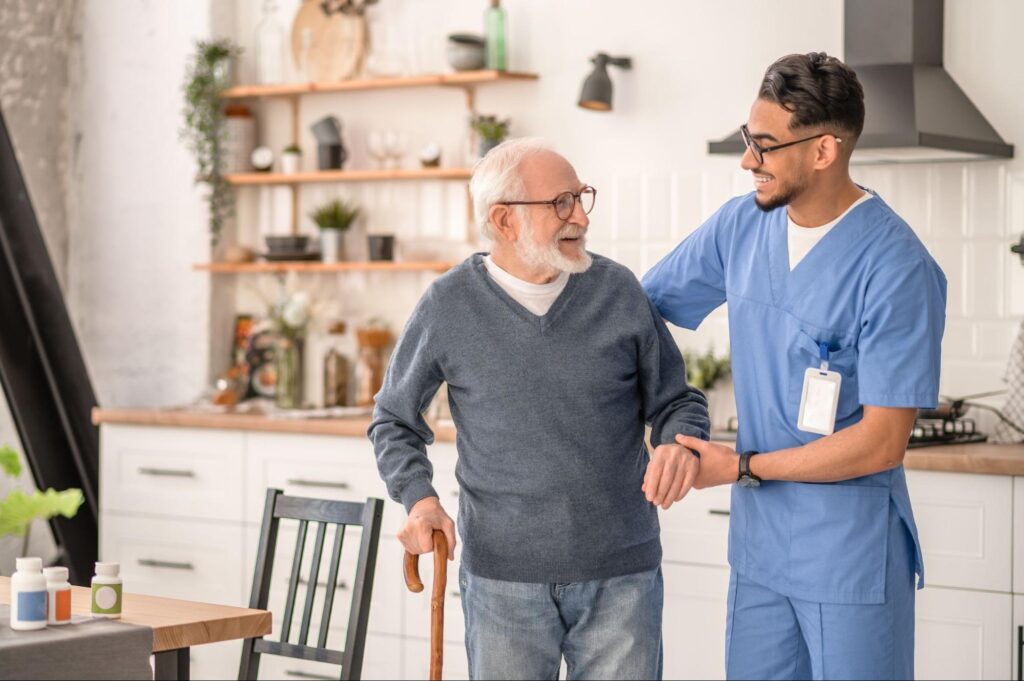Aging brings changes—some expected, some less so. As people grow older, they may need help with daily routines, health management, or emotional well-being. For many, moving into a care facility isn’t the preferred choice. In-home care provides an alternative that lets older adults remain in their own homes while still receiving the support they need. This kind of care plays a key role in helping individuals age safely and comfortably.
Here are several ways in-home care encourages healthy aging, both physically and emotionally.
Promotes Independence
Remaining at home helps older adults maintain a sense of control over their lives. Familiar surroundings, personal belongings, and a known neighborhood contribute to emotional comfort. In-home care offers assistance without taking away independence. For example, caregivers may help with tasks like dressing or bathing while encouraging individuals to do what they can on their own.
This balance between help and autonomy builds confidence. When people feel capable, they are more likely to stay engaged with life and continue their routines. Maintaining independence also helps preserve dignity and reduces feelings of helplessness.
Ensures Personalized Care
Every person ages differently. One individual may need support managing medications, while another may struggle with meal preparation or transportation. In-home care plans are tailored to fit each person’s unique situation. Caregivers work closely with families and healthcare providers to understand medical needs, daily habits, and preferences.
Many providers of nursing home care Sydney also offer in-home care services as part of their broader support options. This makes it easier for families to access professional help without requiring a move to a care facility. The same trained staff who care for residents in aged care homes may also provide services in private residences, bringing both experience and a personal touch. This continuity allows for smoother transitions and more trust between caregivers and the people they support.
Supports Medication Management
Mismanaging medications can be risky, especially for older adults with multiple prescriptions.

Forgetting doses or taking the wrong pills at the wrong time may lead to health complications or emergency visits. In-home caregivers can help organize medications, provide reminders, and monitor for side effects.
By making sure medication schedules are followed correctly, in-home care lowers the chances of harmful drug interactions. It also eases the burden on family members who might otherwise struggle to track complex medication routines.
Reduces the Risk of Falls and Injuries
Falls are one of the leading causes of injury among older adults. A simple trip on a rug or a misstep in the shower can result in serious health setbacks. In-home care providers often assess the living environment for safety risks. They might recommend installing grab bars in bathrooms, improving lighting, or removing clutter.
In addition to improving the home itself, caregivers can assist with mobility. Whether it’s walking support or help with getting in and out of bed, these small actions go a long way in preventing injuries. Staying safe at home means fewer hospital visits and more time spent in familiar, comforting surroundings.
Encourages Healthy Nutrition
Proper nutrition is essential for healthy aging, but cooking and grocery shopping can become difficult over time. Some older adults may lose interest in food, while others might struggle to prepare balanced meals. In-home care can include help with meal planning, shopping, and cooking.
Having someone assist with nutrition means meals are more likely to meet dietary needs. For example, a caregiver can prepare low-sodium meals for someone with high blood pressure or help ensure a diabetic person sticks to their eating plan. Eating well supports energy levels, immune function, and overall well-being.
Offers Companionship and Emotional Support
Loneliness can have serious effects on health. Older adults who live alone may feel isolated, especially if friends or family members live far away. In-home caregivers don’t just help with chores—they also provide companionship.
Regular conversation, shared meals, or even playing a board game together can brighten someone’s day. This emotional connection supports mental health, reduces stress, and helps prevent depression.

Over time, a strong bond can develop between caregiver and client, creating a comforting and reliable relationship.
Helps With Transportation and Errands
Driving often becomes difficult with age. Poor eyesight, slower reaction times, or health conditions may make it unsafe. Losing the ability to drive can feel like losing freedom. In-home care can include transportation to appointments, stores, or social gatherings.
Having someone to drive means older adults can still run errands, attend religious services, or visit loved ones. Staying connected to the community supports mental and emotional health. It also makes it easier to attend regular medical checkups, which play a role in early detection and disease prevention.
Eases the Pressure on Family Members
Family caregivers often take on many responsibilities—sometimes without much preparation. This can lead to stress, fatigue, and burnout. In-home care offers families a way to share the load while ensuring their loved one receives proper personal care.
Professional caregivers can handle time-consuming or physically demanding daily tasks, which gives family members a break. Some families choose part-time support, while others arrange for full-time care. Either way, having trained help provides peace of mind and allows family relationships to remain strong and supportive rather than strained by stress.
Conclusion
In-home care offers more than just help with everyday tasks—it creates an environment where older adults can thrive. From preserving independence to improving safety, nutrition, and emotional well-being, this type of care supports nearly every part of healthy aging. It also gives families the extra support they often need. By providing personalized attention and comfort in familiar surroundings, in-home care allows people to age with dignity, stability, and peace of mind. For many, it is the key to staying at home, staying well, and staying connected.
